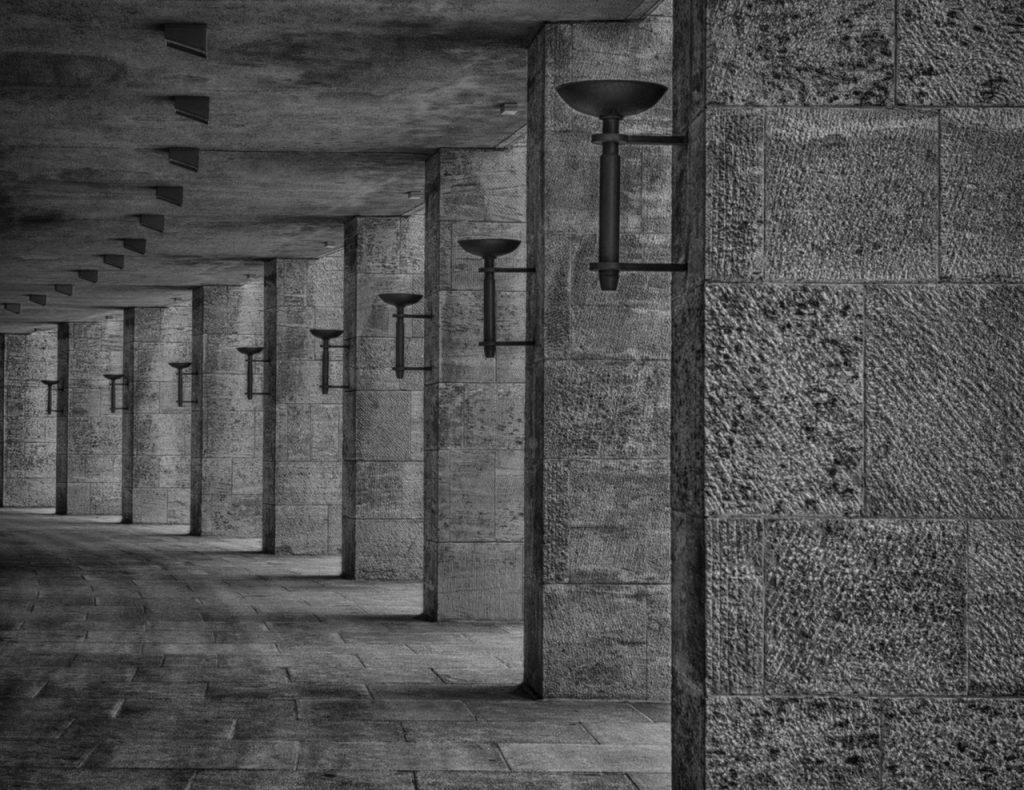This essay is part of a series on Liberalism. See the full collection here.
I have devoured Patrick Deneen’s Why Liberalism Failed, marking up one paradoxical truth after another. Or, perhaps, these are truths that are only regarded as paradoxical, because people are blind to those foundations of liberal thought that would explain why, for example, the champion of the unfettered “individual” smoking and riding his horse into the western mountains (or wearing pajamas while he trawls the internet for pornography of a peculiarly sterile kind) is the fraternal twin of the engineer of the all-competent and all-surveying state.
As I read, my mind turned to the controversy surrounding the Little Sisters of the Poor and the Obama administration’s attempt to sue them out of their consciences. Their offense was that they did not want to cooperate materially with providing artificial estrogen to women who wanted to fool or abuse the nature of their bodies, putting them on a pregnant-already setting while remaining childless. The Little Sisters of the Poor are Roman Catholic, and thus retain some residual respect for the created order.
Professor Deneen can explain to us why the attack on the Sisters was so persistent, and why those who call themselves conservative mounted so feeble a defense. This case touches on every one of the neuralgic contradictions that Deneen says have been built into liberalism from the beginning, so that it is no surprise that liberalism advances while actual human liberty recedes.
Start your day with Public Discourse
Sign up and get our daily essays sent straight to your inbox.Religion, Relationality, and the Res Idiotica
It is no accidental result of the liberal order, but precisely its object, says Deneen, to create the res idiotica: a public space for broad individual expression and complete state control both of the collateral disorder and those cultural institutions that make a claim on a person’s allegiance. Those include religion, as a matter of course. We are mostly born into religious faith, as we are born into families, neighborhoods, and towns—or, at least, we used to be—and the virtue of piety demands that we honor those connections. That is meant as more than a formal admission of gratitude, such as we see on display, says Deneen, for a couple of minutes before a football game. These connections help to constitute a truly human being. For we are not Hobbesian atoms of self-will, not until liberalism makes us so. Not only has the “state of nature” or Rawls’s “veil of ignorance” never existed, human beings have ever been human by virtue of their relations with others, and by virtue of the bonds of duty and memory that these relations imply.
So then, the religious commitment of the Little Sisters could hardly count in their favor. It was instead rather like a small outpost of resistance, surviving the liberal onslaught. “Religion” cannot be tolerated unless it is recast as a simulacrum or reduced to a palimpsest—the residual impression of a religion that used to possess real flesh and bones and blood. Religion as a binding force must not be encouraged, because the liberal orthodoxy holds that nothing ought to bind us but a commitment to ever-increasing power over nature and to the space it clears for individualism. We may, as a function of that individualism, “choose” a religion, rather as we choose a shirt. In other words, religion must cease to be religion, and then it may be tolerated, so long as it does not get in the way of the unfettered choices of other people. There is, in such a system, no God at all.
Thus we find not only the unwillingness but the incapacity of the liberal order even to conceive that a human being might have a hierarchically determinative commitment to obedience, regardless of personal preference. In the liberal order, all such commitments are scorned as atavistic. Hence Deneen’s chilling account of a conversation with a liberal colleague in political science. The man opined that Amish youth must be set free even against their choices to return, after a year of trial in our world of libertas idiotica, to the rich religious and social communities that gave them life and purpose. Hence also the obviously counterfactual claim that the Little Sisters of the Poor would be “imposing” their Catholic faith on their secular employees. The Sisters, who wished merely to refrain from participating, in this one regard, in the regnant individualistic hedonism, threaten that hedonism by their implicit suggestion that God and not man must be the measure of all things.
What about their work? Surely the Sisters might be given credit for their selfless service to the poor? No, not so. Just as essentially placeless and faceless health insurance companies drove out of existence the local and personal arrangements whereby fraternal organizations and guilds once cared for their sick, their widows, and their orphans, so now the liberal state means to engulf all charities, or absorb them and assimilate them to itself. The old forms, again, preserved duties that extended across families and generations, so that I might feel duty-bound to take my turn in helping the people who once helped my father. The new forms entail no such duty. We must always keep in mind that the ideal liberal person, as conceived by such men as John Stuart Mill, is—as Deneen shows again and again—disentangled, dissociated, and disencumbered by prior commitments. What the Little Sisters do, then, is to get in the way of both the state and the individual. They get in the way, as it were, of the technocratic canalization of charity.
The Industrialization and Sterilization of Sex
We can now see, I think, that the specific content of the cause against the Sisters was also crucial. Deneen shows, I believe correctly, that the consumerism of the modern market and the consumerism of modern sex are both progeny of the liberal order. If you wish to raise a laugh, or to turn faces red with wrath, try suggesting that the congress of the sexes is both biologically and anthropologically what I have called “the child-making thing,” and that any realistic view of the act and its moral import must turn to the child who may be begotten by it, and back toward the parents and grandparents who brought into being the acting man and woman in the first place.
For liberalism, that is precisely the thing that must be denied at all costs. It implies the structural inequality of male and female in reproduction and in the care of infants and small children. It reminds us forcibly of those physical differences that underlie so much of our traditional divisions of labor. It is time-transcending, when the liberal order, as Deneen says, means to fix us in a “pastless present.” It is amnesiac, like a bottle of booze, but without the festivity. One should not wonder that the Little Sisters attracted so much opprobrium for wishing to refrain to hand out the sexual soma. It is rather to be wondered that judges and pundits did not demand that they be required to telephone the women in question to take their daily doses.
If it be objected that such drugs are merely a form of medication which ought to be made available to everyone who wants it, we might reply that that is not true, as a plain fact of the matter. The pills do not medicate. They do not prevent a communicable disease; they do not heal a sickness; they do not restore proper function to an organ. The problem, such as it is, is that the organs in question are quite healthy and are working rather too well for the wishes of the not wholly copulating couple. But medicine in the metastatic liberal order is not just for medication. It is for liberation, for the realization of the desires of the individual self.
That is why we are now seeing, much to the profit of pharmaceutical companies, the industrialization of sex and of sexual self-creation or self-negation, as even children are ushered into a world of utterly unfettered and therefore intrinsically meaningless choices. Amputation, mutilation, a series of plastic surgeries, and many decades of synthetic hormones—and everyone who counts in the liberal order profits; mainly the big players in high finance and ever more intrusive and perversely avuncular government.
Children and Culture
But children imply something else, too, something whose destruction by the liberal order is in keeping with the willed sterility of sex. Children imply culture. Liberals, both of the market and of Jabba the State, may speak a lot about “culture,” but they mean by it the thin-soil drift of mass consumption. They are robber barons, Deneen shows, stripping away the cognitive talent from once thriving communities to homogenize the cleverest of our young people, making them into “a fungible global elite who readily identify other members capable of living in a cultureless and placeless world defined above all by liberal norms of globalized indifference toward shared fates of actual neighbors and communities.” Their indifference, or outright hostility, extends toward the hard-won moral, aesthetic, intellectual, and religious wisdom of the past.
The child is a forcible reminder that our life, if it is to be fully human, must transcend the few fretful hours in which we move upon earth. That is just what all of the liberal myths of the state of nature deny. We are blank slates, blank beings, for whom the past is a blank, and the selves outside of our choice of associations are blank. But “the disassembling of those cultural forms that tutor our presentism and instruct us that a distinctive feature of our humanity is to remember and to promise renders us at once free, and trapped by ‘brutish indifference’ to any time outside our eternal present.”
I am aware that we remain sentimentally attached to our children, as we are to our pets. Our barbarism, abortion excepted, is usually not cruel in ways that involve bloodshed or human sacrifice. But we do not allow children to have too great an effect on the really important business of life, which is, as Deneen shows, our clawing our way to the top of the cultural elite, an aristocracy far more radically removed from the poor, both physically and “culturally,” than any periwigged dukes in the days of Louis XVI could ever dream of being. We do not work on behalf of children, just as we do not work on behalf of our poodles and retrievers. We work, and have children, and demand institutions that will keep us in the workplace and away from our children, lest they distract us from that work. In the name of liberation, we cash in the liberty that ordinary human beings once longed for, the practical liberty to have the time and the means to be free from servile labor, so as to enjoy the goods for which we work, things that are good in themselves: a rich family life, most of all.
A Different View of Liberty
That family life should situate us in a place, among other families and in our local approach to eternity. It should endow us with a human time that does not merely count the digits on a clock. But to be so situated requires an utterly different view of liberty from what we have been sold in the mass market or in our mills of mass evacuation of the mind, heart, and soul—our schools, I mean. Cicero could have taught us about this rich and true liberty, or Aristotle, or the fathers of the Church. It is not defined by negation. It is not a freedom from duty, but a freedom for those duties, a freedom for civic engagement with your neighbors, and for the highest call of love, human and divine.
Such freedom requires, as Deneen shows, the ancient habits of self-restraint. These habits allow you not to remake the world according to your desires, which are always insatiable, but to accommodate your desires to the order of things around and within you. That is exactly the self-restraint, the dutiful modesty, and the gratitude that the liberal order denies, just as it denies the goodness of the natural world unless that world is subjected to our technological strafing, stretching, pounding, pumping, and pulverizing.
I will conclude with one more consideration, one that I trust will meet with Professor Deneen’s approval. It too is inspired by the Little Sisters of the Poor. There is a liberty that soars beyond the liberal’s vision of self-fashioning, and also beyond the classical vision of tempered and well-directed passions in the service of the common good. It is what Saint Paul calls “the glorious liberty of the children of God.” That liberty, more than any other, must terrify the worldling of the liberal on the left and the liberal on the right. That liberty does more than acknowledge a duty. It flings itself abroad when there is no duty; it binds itself foolishly in love; it is the freedom of a promise never to be retracted or hedged; the adventurous liberty of devotion, whereby man responds to and even imitates the grace of God.














